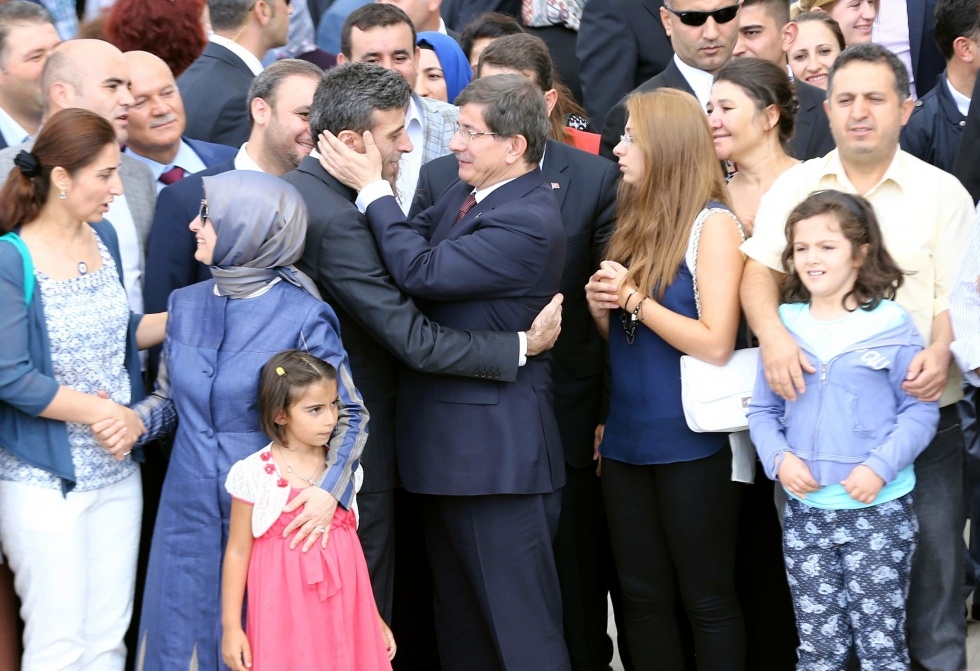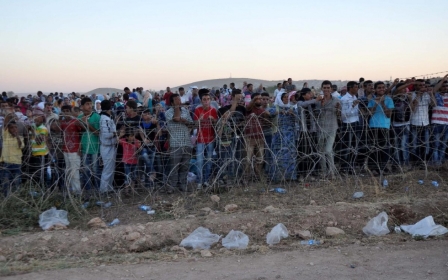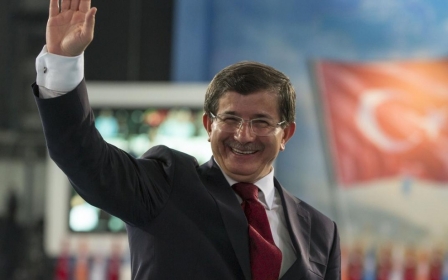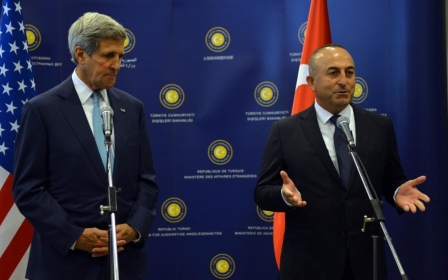Turkey uncorks the genie that is Islamic State

In the small hours of Saturday morning, the 101-day old Turkish hostage crisis came to an expected and happy ending, as 46 staff of the Turkish Consulate General in Mosul were handed back at the Tel Abyad/Akçakale border point. The first that the hostages knew of their release was the moment when the Consul-General, Mr Öztürk Yılmaz, picked up a telephone in an empty room and found himself speaking to his prime minister, Mr. Ahmet Davutoğlu.
The release of the hostages was a massive PR success for Mr. Davutoğlu, who flew from Baku to the southeastern Turkish city of Şanlıurfa to welcome the hostages personally on live television. But if anything, the pace of events since the hostages’ release has become more rather than less hectic, confronting Turkey with a deep crisis in its border provinces with Syria and raising awkward questions about the future of its peace negotiations with the PKK, the armed movement which has been fighting for Kurdish autonomy since 1984. The return of the hostages from Raqqa, IS’s capital, to Tel Abyad had to be delayed for some hours because of uncertainty about the situation on the border as Kurdish villagers fleeing from IS struggled to gain entrance to Turkey.
Though the hostage release was initially described by President Erdoğan as an “operation” by MİT, the Turkish Secret Service, it quickly became clear that there had been no military operation and some sort of deal had been done with IS. Details of what that deal might be are still unclear, though President Erdoğan has indicated that there was no ransom payment. A journalist working for Yeni Şafak, a paper close to the government, said on Monday that he thought the deal had been a prisoner exchange, though he gave no details. Whether a prisoner exchange by itself would have been sufficient to sway IS to hand over such a valuable bargaining chip seems questionable. Other suggestions are that the rebels might have been given military assets, assurance about Turkey’s future conduct, or even intelligence, though these claims are, so far, firmly denied by the authorities.
On the face of it, Turkey’s hands are no longer tied, as far as assisting the US-led coalition against IS. But, even if it has not given any assurances, it looks unlikely in the short term at least that it will visibly support or encourage direct strikes at militants, still less engage in any cross-border operations into Syria.
The fighting along its southern borders is between militants of the YPG (People’s Protection Units) a militia set up and evidently controlled by the PKK from its central command on Mount Kandil on the Iraqi/Iranian frontier. Though Turkey is engaged in peace talks with the PKK, which hinge on the release of its leader Abdullah Öcalan for possible house arrest in Diyarbakır, there seems to be no sign of political détente between Kurdish nationalists and Ankara at the popular level. The Turkish government is still very unpopular in much of eastern Turkey, as attested by pictures of Turkish armoured vehicles stoned by local people there. Kurds on both sides of the border say they suspect that since the clashes began in the summer of 2013, Ankara has found it convenient to stand by and allow IS to fight the Kurds in a struggle in which IS - replete with cash and equipped with heavy weaponry and armoured vehicles - is an easy victor.
For several months, IS has been tightening its grip on the area around the border town known in Arabic as “Ain al Arab” and to Kurds as “Kobane.” Its aim appears to be to take over a further section of the Turkish-Syrian border and control the Mürşitpınar-Ain al Arab crossing. Last weekend they appeared to be close to complete success in taking over the town and the province around it.
“They are using the very sophisticated and developed American weaponry e.g. tanks, Humvees, and long-range mortars they seized in Mosul. People of Kobane are saying, as they had frequently said before, "we will resist till the last one of us gets martyred." Indeed, there has been a historic YPG resistance; it is not sufficient, though,” Mr Anwar Moslem, a Kurdish leader in Kobane said in an interview with a Kurdish journalist last week.
Syrian Kurds bitterly denounce what they see as Turkish partisanship. Some have even claimed that allowing IS to control Kobane is the price Turkey is willing to pay for getting the hostages back. But if it is, Ankara seems to have badly miscalculated. The fighting at Kobane triggered a flood of Syrian Kurdish refugees into Turkey.
Initially at least, they were not welcome. Turkish border guards and soldiers appear to have been under instructions not to admit refugees - and in particular - to crack down on any signs of PYD/YPG activity, deploying tear-gas, violence, and perhaps even live ammunition against them. But early on Saturday, alarmed perhaps by growing international reports, Mr. Davutoğlu gave orders to admit the refugees and by Monday morning, his deputy, Mr. Numan Kurtulmuş announced that 130,000 had entered Turkey. The points at which they crossed and the places in which they are staying were not identified. By late on Monday, in an evident attempt to counteract the bad publicity, Turkish pro-government papers were issuing photographs of soldiers with refugee Syrian Kurdish children in their arms.
So whatever its dealings with IS are, Turkey has ended up taking a further 130,000 refugees from Syria on top of the estimated 1.3 million already believed to be in the country, a severe administrative headache. Moreover, some young Turks are caught up in the conflict. A report by Hurriyet newspaper on Sunday confirmed earlier foreign press reports that it is easy to find recruiters for IS in some Turkish towns. Eastern Turkey, where young Kurds may be leaving to fight for either the Kurdish movement or (if they are Islamists) IS is particularly affected.
It looks as if in its attempts to fight both the PKK and Bashar al-Assad, Turkey has uncorked a genie which is now posed to afflict its own territory, though as yet in Syria, it refuses to compromise with either. On Monday afternoon however, Anatolia, the semi-official news agency, surprisingly became one of the first to report claims that IS used chemical weapons to kill 300 Iraqi soldiers in Fallujah. Are attitudes in Ankara now finally hardening?
- David Barchard has worked in Turkey as a journalist, consultant, and university teacher. He writes regularly on Turkish society, politics, and history, and is currently finishing a book on the Ottoman Empire in the 19th century.
The views expressed in this article belong to the author and do not necessarily reflect the editorial policy of Middle East Eye.
Photo: Turkey’s Prime minister Ahmet Davutoglu embraces Turkey's Consul in Mosul Ozturk Yilmaz as he welcomes dozens of other freed Turkish nationals that were held by Islamist militants, on 20 September (AFP)
Middle East Eye propose une couverture et une analyse indépendantes et incomparables du Moyen-Orient, de l’Afrique du Nord et d’autres régions du monde. Pour en savoir plus sur la reprise de ce contenu et les frais qui s’appliquent, veuillez remplir ce formulaire [en anglais]. Pour en savoir plus sur MEE, cliquez ici [en anglais].





